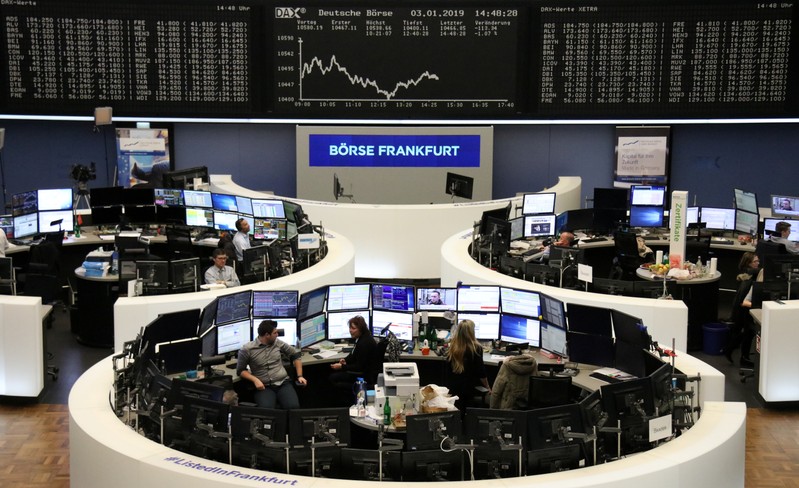
FILE PHOTO: A worker controls a tapping of a blast furnace at Europe’s largest steel factory of Germany’s industrial conglomerate ThyssenKrupp AG in the western German city of Duisburg December 6, 2012. REUTERS/Ina Fassbender/File Photo
January 8, 2019
BRUSSELS (Reuters) – Euro zone economic sentiment deteriorated markedly and by more than expected in December, wrapping up a year that saw optimism falling every month, European Commission data showed on Tuesday, in a new sign of weakness for the bloc’s economy.
The gloomier expectations partly reflected declining confidence in industry, which was consistent with the third consecutive monthly fall in November of industrial output in Germany, the largest economy of the 19-country currency bloc.
In a bad sign for the bloc’ growth prospects in the last quarter of the year, euro zone economic sentiment eased to 107.3 points in December from 109.5 in November, the European Commission said, marking the indicators’ 12th consecutive monthly drop and the lowest level since January 2017.
Economists polled by Reuters had expected a less sharp fall to 108.2, but a slide of optimism among industry managers and consumers worsened the picture.
Sentiment in industry fell to 1.1 points from 3.4 in November, against market expectations of a 2.9 point reading.
The mood of consumers also fell sharply to -6.2 points from -3.9 in November, but this did not prevent shoppers from buying more goods, as retail sales kept growing in November, official estimates released on Monday showed.
As a consequence, retail trade confidence went up by 0.5 points in December, although it could not offset the general gloomier mood.
Sentiment in services, a sector which produces two thirds of the euro zone GDP, went down by 1.4 points.
The worse-than-expected sentiment reading confirms expectations of economists that forecast slowing growth of the euro zone in the last quarter of the year, after GDP growth eased to 0.2 percent in the third quarter from 0.4 percent in the April-June period.
A separate business climate indicator, which helps point to the phase of the business cycle, also decreased in December to 0.82 from 1.04 in November, below expectations of a drop to 0.99.
(Reporting by Francesco Guarascio, editing by Philip Blenkinsop)

